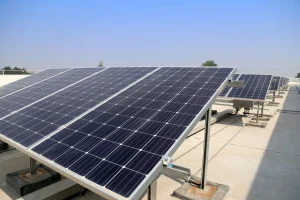Does Singapore Have Carbon Tax?

The tax is imposed on establishments that directly emit greenhouse gases (GHGs) of at least 25,000 tCO2e per year, which includes six of the GHGs that Singapore is currently reporting to the UNFCCC, namely carbon dioxide (CO2), methane (CH4), nitrous oxide (N2O), hydrofluorocarbons (HFCs), perfluorocarbons (PFCs), and sulfur hexafluoride (SF6). By 2024, Singapore will begin disclosing a seventh GHG, nitrogen trifluoride (NF3).
Carbon tax is a policy implemented by the Singaporean government to reduce carbon emissions and combat climate change. The tax is levied on companies that produce greenhouse gases beyond a certain limit. The objective of the carbon tax is to encourage companies to reduce their carbon footprint and promote sustainable practices. This article explores who pays the carbon tax in Singapore and its impact on businesses.
Carbon Tax in Singapore
Singapore introduced a carbon tax in 2019, which is applied to facilities that emit 25,000 tons or more of greenhouse gases annually. The tax is imposed on the company that owns the facility, which is responsible for paying the tax to the government. The carbon tax rate is set at SGD 5 per ton of greenhouse gas emissions. The tax rate is expected to increase to SGD 10-15 per ton by 2030.
The carbon tax is a part of Singapore’s commitment to reduce its greenhouse gas emissions intensity by 36% from 2005 levels by 2030. The tax aims to promote the adoption of clean technologies and energy-efficient practices. The revenue collected from the carbon tax is used to fund various initiatives to support sustainability and climate change mitigation efforts.
Who Pays the Carbon Tax?
The carbon tax is levied on companies that produce greenhouse gas emissions beyond a certain threshold. The companies that are subject to the tax include power stations, refineries, chemical plants, and semiconductor manufacturers. These facilities are responsible for a significant portion of Singapore’s greenhouse gas emissions. The carbon tax is designed to encourage companies to reduce their carbon footprint and adopt sustainable practices.
The companies that are liable to pay the carbon tax include both domestic and international companies that operate in Singapore. The tax is imposed on the company that owns the facility, which is responsible for paying the tax to the government. The tax is calculated based on the amount of greenhouse gases emitted by the facility. The tax rate is set at SGD 5 per ton of greenhouse gas emissions.
Impact of Carbon Tax on Businesses
The carbon tax has a significant impact on businesses in Singapore. Companies that are subject to the tax are required to pay a fee based on the amount of greenhouse gases emitted by their facilities. This fee can be significant for companies that produce a large amount of greenhouse gases.
However, the carbon tax also creates opportunities for businesses to adopt sustainable practices and reduce their carbon footprint. Companies that implement measures to reduce their greenhouse gas emissions can lower their tax liability. For example, installing solar panels on the roofs of factory warehouses can reduce electricity consumption and lower greenhouse gas emissions. This can also result in cost savings for businesses in the long run.
Furthermore, the carbon tax can incentivize companies to invest in clean technologies and energy-efficient practices. For example, companies can switch to renewable energy sources such as solar panels or wind turbines to reduce their reliance on fossil fuels. This can also help companies to reduce their operating costs and increase their competitiveness in the market.
Conclusion
In conclusion, the carbon tax is a policy implemented by the Singaporean government to reduce greenhouse gas emissions and combat climate change. The tax is levied on companies that produce greenhouse gases beyond a certain limit. The tax rate is set at SGD 5 per ton of greenhouse gas emissions and is expected to increase in the future. Companies that are subject to the tax are required to pay a fee based on the amount of greenhouse gases emitted by their facilities. The carbon tax creates opportunities for businesses to adopt sustainable practices and reduce their carbon footprint, which can result in cost savings and increased competitiveness in the market.
If you are interested in reducing your carbon footprint and exploring sustainable options for your business, First Solution offers solar panel power systems for factory warehouses. Installing solar panels can significantly reduce your electricity consumption and lower greenhouse gas emissions. Contact us to learn more about installing solar panel for your business.
